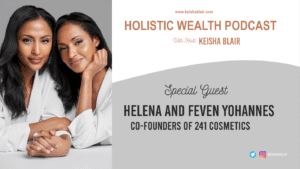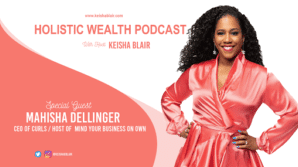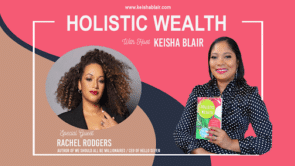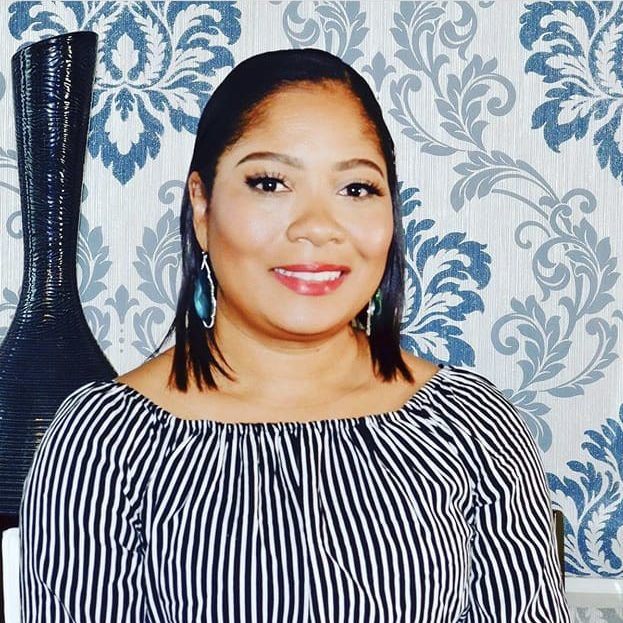This Black History Month will be unprecedented and represents history in the making. It’s the Black History Month celebration that follows a community that is still being ravaged by COVID-19. Numerous commentators have compared the events of the race riots in the summer of 2020 to uprisings that took place in 125 cities in the aftermath of the April 4, 1968 assassination of Martin Luther King Jr.
According to USA Today, there were protests in 700 cities and towns in the aftermath of the death of George Floyd. In addition, the Black community has suffered from an outsized share of economic losses due to COVID-19.
In my book Holistic Wealth, I spoke about this “emaciation effect”, which is a phenomenon that affects people of color who have to deal with regular stressors in addition to a lifetime of racial discrimination, which also affects our ability to achieve holistic wealth.
The State Of Women-Owned Businesses Report found that Black women-owned businesses earned an average revenue of $24,000 per firm vs. $142,900 among all women-owned businesses.
As host of the Holistic Wealth podcast, I have had the honor of interviewing some of the most resilient entrepreneurs who’ve shared how they have weathered significant setbacks. In honor of Black History Month, these are lessons that we can all benefit from to build successful businesses and leave an impact on humanity.
Here are three of the most important lessons on success from some of the most resilient black entrepreneurs.

To Overcome Funding Hurdles – Focus on Your Unique Story
A 2016 DigitalUndivided study uncovered that Black women founders account for just 0.2 percent of venture capital funding. On episode 10 of the Holistic Wealth podcast, twin sisters Helena and Feven Yohannes discussed how they had “amassed an excel spreadsheet of 71 nos” in their quest to fund their company, 241 Cosmetics.
On the podcast, Feven and Helena describe how they didn’t even have a “boot to strap” in terms of bootstrapping their company. As political refugees who were born in a refugee camp in The Sudan in the 1980s, and who immigrated to the U.S. via a green card lottery with sponsorship from Third Presbyterian Church in Rochester, New York, they knew how to stand in their strength.
Their parents walked for two months from Eritrea to the refugee camp in The Sudan to seek refuge during the civil war between Eritrea and Ethiopia in the early 1980s. Feven and Helena held strong to their East African roots and resilience embedded in their DNA. As they told me on the podcast, “We were born in a tiny hut made of mud and grass – in the dark.”
They buckled down and funded 241 Cosmetics themselves (the company is 100% self-funded) and focused on their personal story to help differentiate their brand in a crowded marketplace. This strategy worked amazingly well and, in December 2020, their company was featured on Oprah’s Favorite Things List 2020.

Nothing Is Wrong With Keeping Your Day Job At First
Mahisha Dellinger, CEO of CURLS and star of “Mind Your Business with Mahisha” on OWN TV, mentioned on episode 11 of the Holistic Wealth podcast that she kept her day job for three years before fully launching out on her own. She used the funds from her day job to invest in her business and keep the family afloat.
Like many small business owners, Mahisha couldn’t secure a small business loan despite having stellar credit and used $30,000 to start out very lean. Her advice to others is to “start as lean as possible and not go into debt too fast,” as only half of small businesses survive after five years, according to the Small Business Administration.
In her interview, Mahisha says that she’s glad she actually didn’t get the loan because “You don’t need $1.5M to start – get the bare bones done and don’t go too heavy [on the spending].” Mahisha was raised in poverty by a single mother and has overcome experiences that included drive-by drug-gang shootings of her Sacramento-area childhood home. Nevertheless, she was able to dig deep, stay open and hang on to the life lessons bestowed by a loving family.

Your Adversity Is Your Strength
On the inaugural episode of the Holistic Wealth podcast, Rachel Rodgers, CEO of HelloSeven, describes how, during the 2009 recession, she faced a major setback after her clerkship ended and she lost her job.
“I technically lost my job because it’s a year term and then you’re done. I was able to get unemployment benefits which were allowed during that time. I moved out of my house and rented it out and moved into a tiny little basement apartment with my husband. I got rid of my nice car and got a janky little Altima.”
Fast forward 11 years later: In June 2020, Rachel hit a major milestone when she brought in a million in revenue from her coaching business.
After the George Floyd events, she launched the Anti-Racist Small Business Pledge as a way for small businesses to amplify their collective influence to demand change and real action. In her interview, Rachel indicated that she was on track to earn $5M in revenue this year.
Three of these entrepreneurs – Helena and Feven Yohannes and Mahisha Dellinger also took the Personal Financial Identities Quiz that I developed and self-identified as Minimalists. They also discussed how their personal financial identities have influenced their business decisions and their branding. To learn more, check out the full episodes.

Keisha Blair is the world’s foremost expert on holistic wealth; the award-winning, bestselling author of “Holistic Wealth: 32 Life Lessons To Help You Find Purpose, Prosperity and Happiness;” and founder of the Keisha Blair Institute on Holistic Wealth, which offers the Certified Holistic Wealth Consultant Program. Her current focus at the Institute includes providing a range of course offerings and tools for entrepreneurs and professionals. She has been featured in The New York Times, Forbes, Wall Street Journal, Harvard Business Review, MSN, Yahoo Finance, and many other publications. Her writing has appeared in the New York Observer, Swaay Media, and Thrive Global. Find out more at www.keishablair.com.
